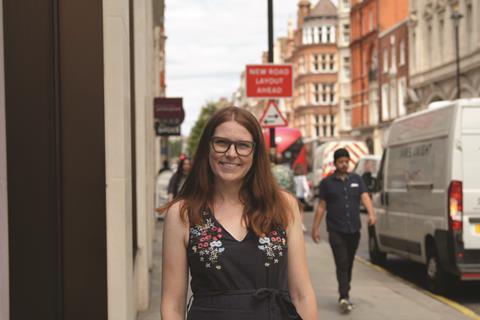The Church is made up of Christians from a myriad of different professions, and yet their ordinary tales of God at work rarely get told. In this series, we bring you stories of faith on the frontline

My name is Miriam Smith, and I’m a speech and language therapist working with adults who have experienced complex brain injuries. Over the past twelve years, I’ve worked in a variety of settings, from acute hospital care and supporting medically unstable patients to community roles serving adults with learning disabilities. I’m now in a specialist role in neurorehabilitation at a non-NHS charity hospital.
I was drawn to speech therapy as a student after hearing about the role and doing some placements. I chose my A-levels and degree accordingly and never looked back. Today, I assess and support both patients and their families, many of whom are adjusting to life after neurological damage caused by strokes, accidents or major surgery. My work focuses on disorders of consciousness, tracheostomy care, swallowing difficulties and communication challenges.
It’s such a privilege to journey alongside patients and their families, as well as my colleagues. I work with some outstanding people. The toughest part of the job is supporting families through the emotional weight of grief and loss, especially when the person is no longer who they once were, or progress slows. Ethical questions, like those surrounding advanced care plans, can be complex in this space.
My faith shapes how I see and do my work. I believe every person has inherent dignity, regardless of their condition or how they see themselves, because each one is made in God’s image. I try to show that value to colleagues too. Of course, the working environment can be challenging, and my colleagues see me in all stages of my emotions. I seek to work in a way that is above reproach, and we aim to do that as a team. The standard is to care for our patients and colleagues, regardless of what is going on elsewhere. I have the opportunity to supervise people and I try and bring in the concept of grace all the time, to ourselves and each other when we get things wrong.
Interestingly, I’ve found that many of my patients are Christians, and sometimes therapy includes singing hymns or worship songs. Colleagues know I’m open about who I am, and conversations about church, including my youth work there, come up naturally. Please pray for more Christians in the medical field and that we would use our voice, knowledge and compassion to glorify God in all we do.
Miriam was speaking to Paul Woolley






































No comments yet